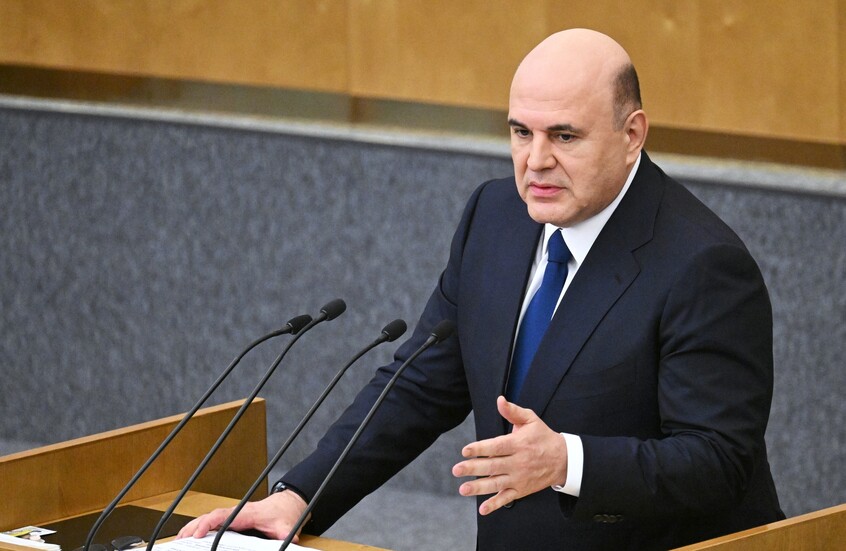
Moscow - Saba:
Russian Prime Minister Mikhail Mishustin announced that the Russian national economy continued its successful path for the second consecutive year, achieving growth rates in 2024 that exceeded the global average.
Presenting the government's performance report for 2024 to the Russian Duma on Wednesday, Mishustin said that Russia's gross domestic product (GDP) growth reached 4.1% last year, several times higher than the growth rates of advanced economies.
The Russian Prime Minister added, "Russia's economic performance over the past two years has outperformed its European counterpart by six times, while many (European) countries have experienced a decline in growth."
Mishustin revealed that the Russian economy, in nominal terms, will reach a record high of 200 trillion rubles (approximately $2.3 trillion) in 2024, double the value recorded in 2020.
He stated that "this achievement is the result of the efforts of Russian citizens and employees of domestic companies, in addition to the precise implementation of the Russian President's directives, effective coordination between the government and the Central Bank, and the contribution of parliament and economic experts."
Mishustin explained that domestic demand was the main driver of economic growth in 2024, both in terms of investment and consumption.
He also noted that real household incomes increased by 8.5% in 2024, and said that "this growth is the result of the implementation of a series of social programs, coinciding with the unemployment rate falling to a historic low."
The Russian Prime Minister pointed to the Russian national economy's shift toward greater technological development and diversification, saying, "Our economy has become more technologically advanced and structurally diversified, which positively impacts macroeconomic conditions and budget stability, and provides a solid foundation for achieving long-term strategic goals."
Russia's outstanding economic performance demonstrates the success of its policies in achieving economic stability despite geopolitical challenges and severe Western sanctions.
Russian Prime Minister Mikhail Mishustin announced that the Russian national economy continued its successful path for the second consecutive year, achieving growth rates in 2024 that exceeded the global average.
Presenting the government's performance report for 2024 to the Russian Duma on Wednesday, Mishustin said that Russia's gross domestic product (GDP) growth reached 4.1% last year, several times higher than the growth rates of advanced economies.
The Russian Prime Minister added, "Russia's economic performance over the past two years has outperformed its European counterpart by six times, while many (European) countries have experienced a decline in growth."
Mishustin revealed that the Russian economy, in nominal terms, will reach a record high of 200 trillion rubles (approximately $2.3 trillion) in 2024, double the value recorded in 2020.
He stated that "this achievement is the result of the efforts of Russian citizens and employees of domestic companies, in addition to the precise implementation of the Russian President's directives, effective coordination between the government and the Central Bank, and the contribution of parliament and economic experts."
Mishustin explained that domestic demand was the main driver of economic growth in 2024, both in terms of investment and consumption.
He also noted that real household incomes increased by 8.5% in 2024, and said that "this growth is the result of the implementation of a series of social programs, coinciding with the unemployment rate falling to a historic low."
The Russian Prime Minister pointed to the Russian national economy's shift toward greater technological development and diversification, saying, "Our economy has become more technologically advanced and structurally diversified, which positively impacts macroeconomic conditions and budget stability, and provides a solid foundation for achieving long-term strategic goals."
Russia's outstanding economic performance demonstrates the success of its policies in achieving economic stability despite geopolitical challenges and severe Western sanctions.